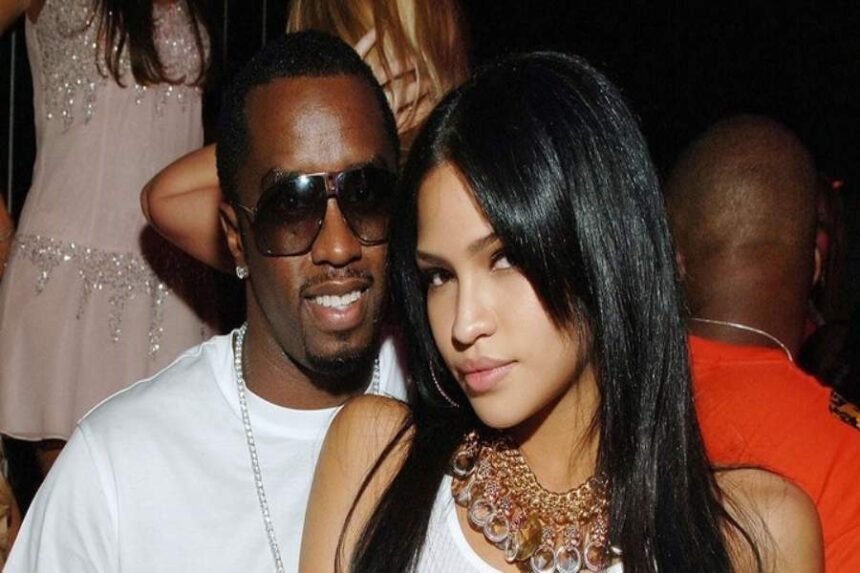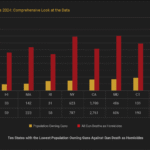The entertainment industry was thrust into a maelstrom of controversy with the recent leak of a 2016 surveillance video featuring Sean “Diddy” Combs. This footage, capturing a violent episode between Combs and his then-girlfriend Cassie Ventura, rapidly disseminated across social media, sparking widespread shock and condemnation. In the video, Combs aggressively confronts Ventura in the hallway of a high-profile Los Angeles hotel.
His actions, which include grabbing, throwing, and kicking Ventura, are starkly violent and have ignited a fierce backlash from both the public and various advocacy groups.
The immediate and visceral reaction to the footage underscores the gravity of the incident and its potential implications for Combs, a figure long celebrated in the hip-hop community. This incident has led to public outcry and prompted legal scrutiny, with debates about the repercussions such behavior should warrant.
The convergence of legal issues and public sentiment has created a complex storm of controversy, placing Combs’ legacy and future within the industry under intense scrutiny. This episode has reignited discussions on the treatment of women in the entertainment industry, emphasizing the need for accountability and respectful conduct.
The Incident Detailed
The footage emerged last Friday and captures a deeply troubling scene at the InterContinental Hotel in Century City, Los Angeles. Sean “Diddy” Combs, wearing only a towel, is seen in a frantic pursuit of Cassie Ventura along a hotel hallway. His actions escalate quickly as he grabs Ventura by the neck, a move that preludes him, throwing her violently to the carpeted floor.
Not stopping there, Combs proceeds to kick her multiple times while she is down, an act of aggression that is as shocking as it is revealing. This raw and unfiltered glimpse into a private moment of violence not only sheds light on the personal conduct of a high-profile figure but also casts a long shadow over his public persona.
The video has not just sparked outrage; it has reignited a broader conversation about the patterns of domestic violence that plague the entertainment industry. Advocates and observers are now calling for more stringent accountability and structural changes to address and prevent such abuses of power, urging those within the industry to take a more rigid stance against such behaviors and to support the victims who come forward.
Combs’ Controversial Apology
To quell the backlash, Sean “Diddy” Combs issued a public apology via a video released on Sunday. Lasting only a minute, the apology responded to the disturbing footage that had circulated widely. In it, Combs attempts to confront his past actions, admitting that he had hit a personal low during the assault.
He expressed deep remorse, repeatedly acknowledging that his behavior captured in the video was “inexcusable.” Despite these declarations, Combs conspicuously avoided mentioning Cassie Ventura by name, focusing the apology more on his own experience of regret and less on the direct impact of his actions on Ventura.
This omission did not go unnoticed and sparked further criticism from various observers, including Ventura’s legal representatives. They argued that the apology seemed self-centered, crafted more to salvage his image rather than offer genuine repentance or acknowledgment of the victim’s suffering.
This aspect of the apology has fueled debates about the sincerity of public apologies in the face of serious allegations, particularly when they seem to serve the perpetrator’s image rather than provide solace or justice to the victims.
Legal and Public Response
The public’s and legal representatives’ reaction to Combs’ apology was immediate and critical. Meredith Firetog, a partner at Wigdor LLP and an attorney for Cassie Ventura, voiced strong objections to the nature of Combs’ public apology.
In her statement released to Fox News Digital, Firetog lambasted the apology for being self-centered, highlighting that it seemed more about Combs’ redemption narrative rather than addressing the actual harm inflicted on Ventura and potentially others.
She emphasized that Combs initially denied any wrongdoing when the allegations first surfaced, only acknowledging his actions once the incriminating video was made public, leaving no room for denial.
According to Firetog, this shift suggested a strategic rather than a sincere acknowledgment of guilt, underlining a pattern of avoidance until confronted with irrefutable evidence. This pattern, she argued, reeked of desperation and an attempt to manipulate public perception rather than a genuine act of contrition.
Firetog’s dismissal of the apology as “disingenuous” captured the sentiment of a broader skeptical public, who echoed her views in discussions across various media platforms, questioning the authenticity of Combs’ remorse given the timing and content of his apology. This critical reception indicates a growing demand for more accountable and meaningful public apologies in cases involving serious allegations.
The public’s reaction to Combs’ apology has been overwhelmingly negative. Social media platforms have been inundated with comments from fans and critics alike, condemning Combs’ actions and questioning the sincerity of his apology. High-profile figures such as 50 Cent have also weighed in, with the rapper criticizing Combs for what he perceived as a strategic misstep in handling the situation.
Moreover, the incident has had legal implications for Combs. Ventura filed a lawsuit against him in November 2023, accusing him of physical abuse and rape throughout their decade-long, on-and-off relationship. Although the lawsuit was settled for an undisclosed amount just one day after it was filed, Ventura’s legal team insists that the settlement was not an admission of wrongdoing by Combs.
The leaked video has also prompted a broader discussion about the responsibilities of those in positions of power within the entertainment industry. Advocates for domestic violence survivors have called for more stringent measures to be put in place to protect victims and hold perpetrators accountable, especially in high-profile cases.
In light of the recent developments, the Los Angeles District Attorney’s office has issued a statement confirming that Combs cannot be prosecuted for the assault depicted in the video due to the statute of limitations. However, the office encouraged victims and witnesses of any crime to come forward and seek support from their Bureau of Victims Services.
The incident has also cast a shadow over Combs’ past dealings. In March, federal authorities raided his homes in Los Angeles and Miami as part of a human trafficking investigation. However, it remains unclear whether Combs is a direct target of the investigation. These legal troubles, coupled with the assault video, have significantly tainted Combs’ public image and raised questions about his future in the music industry.
As the situation unfolds, the discussion around domestic violence, celebrity culture, and accountability continues to evolve. Ventura’s bravery in coming forward has been lauded by her supporters, and her case has become a symbol of the ongoing struggle against abuse in the entertainment sector. The industry and its watchers now wait to see how Combs will navigate the repercussions of his past actions and whether he can genuinely commit to the personal growth he has promised.




